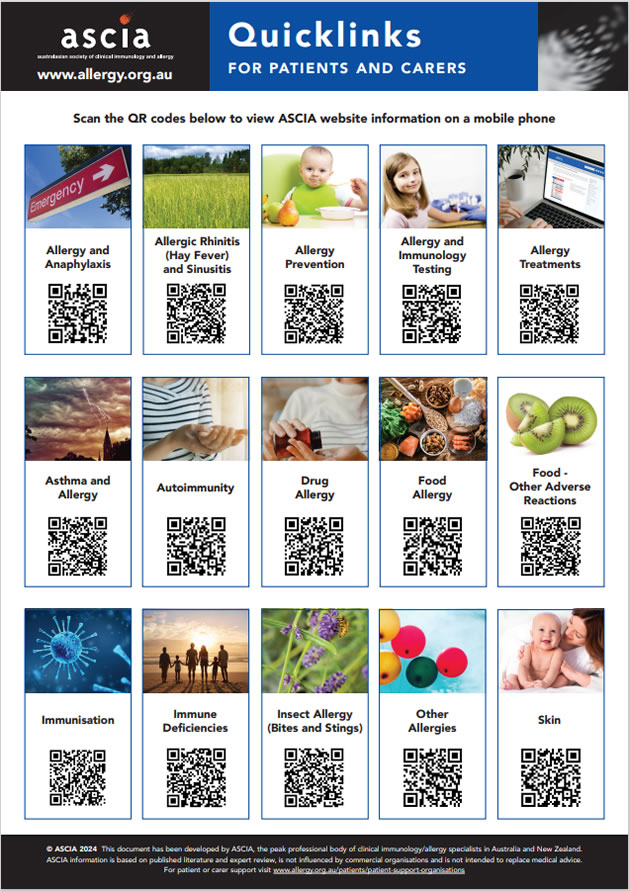Updated ASCIA OIT for Food Allergy FAQ
ASCIA Oral Immunotherapy (OIT) for Food Allergy Frequently Asked Questions (FAQ) for patients and carers has been updated to include more information about safety concerns. The updated FAQ is available on the ASCIA website https://www.allergy.org.au/patients/allergy-treatments/oral-immunotherapy-for-food-allergy
The additions to Q 6 (highlighted below in bold) have been made in response to concerns about:
- Exercising soon after OIT doses, as this increases the risk of allergic reactions (including anaphylaxis).
- Other factors that increase the risk of allergic reactions (including anaphylaxis).
Q 6: Are there any safety concerns about OIT for food allergy?
Safety concerns about food OIT include:
- People on food OIT tend to have more allergic reactions overall than people who are avoiding their allergen, due to allergic reactions caused by the OIT itself.
- People on food OIT can still have allergic reactions due to accidental exposure to food allergens.
- Food OIT may make eosinophilic oesophagitis (EoE) worse, or EoE can develop in patients who did not have EoE prior to food OIT.
- Exercise after an OIT dose can increase the risk of allergic reactions (including anaphylaxis). Doses should be given when a person can rest and be observed by a parent/guardian for at least 2 hours.
- Co-factors such as infections, menstruation, poorly controlled asthma, allergic rhinitis and lack of sleep can also increase the risk of allergic reactions (including anaphylaxis) from an OIT dose.
Another addition is "Impact on daily life" to Q 5 as highlighted below in bold.
Q 5: Is OIT a cure for food allergy?
Current food OIT methods are not a cure for food allergy. Any potential benefits of food OIT need to be considered against the following issues to decide if there is likely to be an overall benefit of OIT:
- Possible side effects such as allergic reactions, including severe allergic reactions (anaphylaxis).
- Impact on daily life, time commitment required and cost of OIT.

 Each of the following webpages include a QR code directly below the instructions "Scan the QR codes below to view ASCIA information on a mobile phone:"
Each of the following webpages include a QR code directly below the instructions "Scan the QR codes below to view ASCIA information on a mobile phone:"